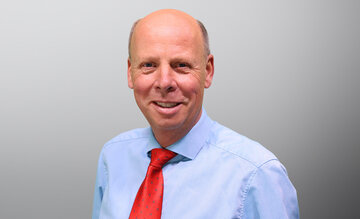
Openness and tolerance
Furtwangen University is committed to diversity and tolerance. We are committed to equal opportunities for men and women, to equality between different lifestyles and against discrimination of any kind. At Furtwangen University, we have committed ourselves to taking special account of these principles in our mission statement and have anchored them in various areas:
- Our Gender & Diversity Office is the central coordination point for all issues relating to equality, tolerance, equal opportunities, anti-discrimination and diversity. Its work focuses on the design and implementation of university-specific measures, coordination of the Senate's Gender & Diversity Advisory Committee, involvement in the area of personnel development, further development of the university's diversity concept, topic-related communication internally and externally and close cooperation with the contact persons for equality, equal opportunities and anti-discrimination
- Our Equal Opportunities Representatives support both academic staff and students
- Our non-academic staff are supported by our Gender Equality Representatives
- Contact persons for discrimination, harassment and bullying are present at every location
Family-friendly university
The university aims to create working and study conditions for students and employees that enable a successful work-life balance. In doing so, HFU refers to an open definition of family, which describes a generational network in which people stand up for each other. This includes step, foster and adoptive relationships as well as same-sex partnerships. Our university thrives on its family atmosphere and families in particular should benefit from this. With this in mind, we try to create and improve framework conditions and structures.
Furtwangen University has been certified as a family-friendly university since 2008 and was re-audited and recognised in 2011. In 2014, Furtwangen University signed the "Familie in der Hochschule" charter and is thus a member of the Best Practice Club of family-friendly universities in Germany. The charter is a programme of the Robert Bosch Foundation and the Federal Government Commissioner for the New Federal States in cooperation with the Center for Higher Education Development (CHE).
On 1 March, 2018, the university joined the "Familie in der Hochschule e.V." association as a founding member. In doing so, it reaffirmed its goal of creating family-friendly structures for students, teaching staff and employees and working within the association to promote family-friendly standards in the areas of academic and management culture, working conditions, health promotion and infrastructure.
Sustainability and climate protection
Sustainability
![[Translate to English:] Man sieht eine Auflistung der Sustainable Developmment G](https://www.hs-furtwangen.de/fileadmin/_processed_/e/3/csm_E_2018_SDG_Poster_without_UN_emblem_Letter-US_60e70f0228.jpg)
Sustainable development is firmly anchored at Furtwangen University. The word Sustainability encompasses our goal to maintain our abilities in relation to social, economic and ecological development (SEED). Due to its conciseness, the term SEED is often used hereafter.
The university's activities in the area of sustainability encompass four different fields of action: Teaching, research, transfer and operations.
Sustainability is anchored in HFU's mission statement in the area of "Social responsibility and securing the future".
Sustainable development/SEED and the necessary awareness of resources have a lot to do with education and knowledge about the opportunities and challenges of technological innovation. Our students spend a significant number of years of their lifelong education at HFU. During their studies, they are already active in project teams, at international partner universities, in companies or research institutions. This is the key to our responsibility, especially as a public educational institution. Our graduates will be the ones who can play a decisive role in shaping the technological, economic and social challenges of the future for SEED. A tree with its roots and leaves is a symbol of the necessary long-term view of sustainability.
All of our faculties have firmly anchored sustainability topics in their structures and courses.
The university is also a network partner of External link opens in a new window:Smart Green, which generates exciting initiatives for our students.
Climate protection
Climate protection is an important and firmly anchored part of Furtwangen University. We have one of the nine climate protection managers appointed by the state of Baden-Württemberg at our university. Sandy-Cheril Manton is responsible for the coordination and exchange between the institutions. We also have a climate protection committee.
Quality
Quality Management at Furtwangen University
![[Translate to English:] Eine Infografik, die das Vier-Säulen Modell näher aufsch](https://www.hs-furtwangen.de/fileadmin/_processed_/4/6/csm_Vier-Saeulen-Modell_des_Qualitaetsmanagementsystems_der_HFU_9aa332526f.png)
As one of the leading universities in Germany, HFU is also characterised by its leading position in teaching. The academically sound, practice-oriented and innovative Internal link opens in the same window:education and training at the highest level of quality creates attractive learning conditions for students and a supportive environment for teaching staff. HFU has established a comprehensive quality management system based on four pillars to ensure and improve the quality of studies and teaching in the long term.
Pillar 1: Commitment to quality
The constant pursuit of the highest quality guides the actions of all members of Furtwangen University. In order to define the direction and objectives, HFU has adopted a "Quality Vision" with the participation of the students. Together with the requirements of university law, these goals form the first of the four pillars of the quality management system (QMS) at HFU.
Quality vision
HFU is continuously expanding its traditionally good reputation as an innovative university with outstanding educational quality.
We design teaching and studies in such a way that students achieve the agreed learning objectives of the respective subject and degree programme. This includes the promotion of soft skills and methodological competence. Students are thus also equipped for further development in their fields of work. Our graduates are a positive advertisement for HFU:
- They are pillars of the regional economy and thus strengthen the region.
- They enjoy national recognition and are in demand.
- They are internationally employable.
The university achieves this in a teaching and learning environment with a familiar character and a distinctly constructive culture of discussion.
Pillar 2: Creating structures
![[Translate to English:] Eine farbige Auflistung der vier Regelkreise der Qualitä](https://www.hs-furtwangen.de/fileadmin/_processed_/d/1/csm_Vier_Regelkreise_der_Qualitaetssteuerung_der_HFU_5d4abf8279.png)
Structural quality, the second pillar of the QMS at HFU, is fundamental to all other forms of quality, as a functioning set of rules and developed resources create security for those involved and the results. The principle of subsidiarity is the guiding principle at HFU: the lowest level is responsible for quality, at which the respective measures can be planned and implemented. These levels are linked via "bottom-up reporting" and a "top-down information flow". This creates accountability and an agile system of quality control.
Partnership
What is special about HFU – together with two partner universities, a quality advisory board is to be set up for each of the three universities. These will be made up of external experts and thus support the QMS from an expert perspective. The quality advisory board will be set up as soon as approval has been granted by the Accreditation Council.
QM Board
All committees at the university are included in these control loops. The Quality Management Board (QM Board) is of decisive importance for the overall structure within the university. This is an advisory Senate committee and ensures that HFU's quality management system (QMS) functions in accordance with the accreditation regulations set out in the StAkkrVO and further develops the QMS. It will be joined by the externally staffed Quality Advisory Board, which is to be established from 2020 following approval of an application to the Accreditation Council.
Pillar 3: Designing processes efficiently
![[Translate to English:] Farbige Übersicht der Prozesslandkarte der HFU](https://www.hs-furtwangen.de/fileadmin/_processed_/8/7/csm_Prozesslandkarte_HFU_a0c1bd88d5.png)
Process quality, the third pillar of the quality management system (QMS) at HFU, is the result of a precise but flexible definition of all processes at HFU. These are summarised in a process map; all main and sub-processes are modeled according to the rules of modern process management. As a special feature, Furtwangen University has set up technical support systems to help with the implementation of processes, such as FINQUAS, Furtwangen's information system for quality assurance.
Pillar 4: Ensuring results
Quality of results, the fourth pillar of the quality management system (QMS), represents the output of the overall system. A clear structure characterised by values and implementing the applicable university law with efficient processes at all levels results in a high quality of studies and teaching. Conversely, findings from the evaluation of studies and teaching have an impact on the other pillars of the QMS – a continuous improvement process.
Quantitative impact monitoring
- Teaching evaluation: Every course is regularly evaluated by the students. Teachers, course directors and faculties use the insights gained to further develop the course and the degree programme.
- Service evaluation: Students can submit their assessment of the service quality of the administration and central facilities in a regular survey. The administration and facilities use this to derive measures to improve service quality.
- Survey of graduates: How do graduates look back on their studies at HFU? How did they find employment? Answers to these questions are provided by former students in annual surveys. The results are extremely important for the adaptation of a practice-oriented academic degree program.
- Bonus/malus system: All students have a personal points account. This is used to manage studies in the interests of the students, as it enables rapid personal progress in their studies and comprehensive support services.
- Employee survey: Employees regularly look inwards and evaluate their work situation. This is an important management tool for the university in order to further develop cooperation and leadership within the university.
Qualitative impact monitoring
- Quality reports: The annual quality reports of the degree programmes are HFU's central reporting tool. They contain all important key figures of the degree programmes and the faculty's statement on the development of the degree programme. A university-wide quality report is compiled on this basis.
- Quality discussions: Annual discussions between the faculty and the Board of Executives on the existing range of courses serve to further develop studies and teaching. The faculties' quality reports are included here.
- Study commissions: The study commissions in all degree programmes make recommendations for the further development of the content and form of studies and are involved in the evaluation of teaching.
External evaluations
Furtwangen University wants to know: How do others see us? This is why HFU participates in third-party evaluations, rankings and certifications.
Here is a selection of Furtwangen's successes:
- HFU's degree programmes regularly receive top positions in rankings such as the CHE University Ranking.
- HFU is one of the universities of applied sciences with the most scientific publications in Baden-Württemberg (peer review journals).
- HFU has an above-average research income (third-party funding) among universities in Baden-Württemberg.
- HFU's continuing education programme was rated "GOOD" by Stiftung Warentest.
- HFU was the second university of its type in Germany to be awarded the coveted seal of system accreditation. This is based on its highly developed quality assurance system in the areas of study and teaching.
- The ERASMUS seal of quality documents the outstanding quality of support for international students at HFU.
- As one of the few universities in Germany, HFU's sustainability management has been awarded the EU Eco-Management and Audit Scheme (EMAS).
Equal opportunities plan
Internationalisation
Internationality is an integral part of Furtwangen University's mission statement and its trademark.
Internal link opens in the same window:Find out more about Furtwangen University's mission statement.


